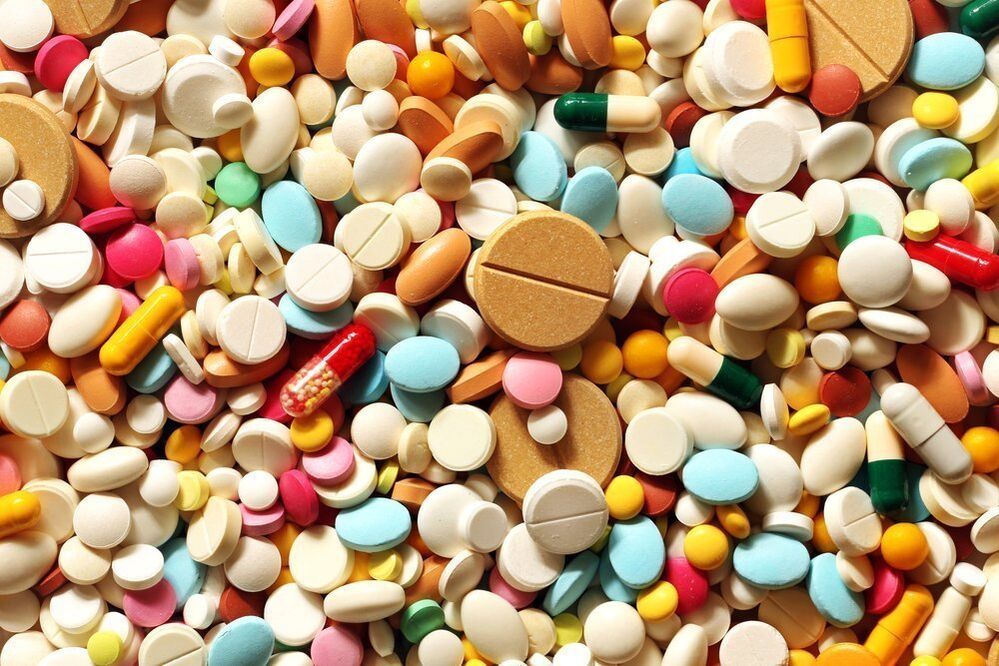Worms are parasites that belong to the group of helminths. Found in the body of mammals, fish and humans, they feed on the "host", harm the body by reducing the nutritional value of food, excreting waste products, lowering immunity and increasing susceptibility to allergens. In the history of the fight against helminthiasis, mankind has invented many methods of treatment. We consider the effectiveness of these methods, the effect of prevention in the form of regular intake of pills against worms, separating the truth from fiction.
Worms: harmful parasites

Although there are symbiotic parasites in nature that exist at the expense of the host, bringing not only harm but also benefit to the main body, worms are parasites, the presence of which in the body significantly affects health. With regard to the degree of damage, helminthiasis are compared with diseases such as tuberculosis, coronary heart disease and chronic diarrhea.
Worms are parasites that, even in the early stages of helminthiasis, can cause disorders of the digestive system, immunity and allergic reactions. With the development of the disease, anemia, various deficiencies are noted due to the consumption of nutrients, vitamins and minerals by helminths that enter the human body with food.
The group of worms, parasites and helminths includes roundworms, pinworms, nematodes and toxocaras. In terms of the spread of helminthiasis, they are compared to infectious diseases, second only to influenza. And the presence of helminths in the body against the background of an acute infectious process can significantly complicate recovery and prolong the disease.
Severe helminthiasis also impair reproductive function, can be the cause of infertility, the birth of children with developmental disorders. The spread of worms throughout the body becomes the cause of a person's disability.
The prevalence of helminths is most often explained by non-observance of hygiene rules ("disease of dirty hands"), the quality of living conditions and the pollution of the areas around the livestock farms both privately and commercially. Failure to comply with sanitary and hygienic standards: The processing ofUnder our climatic conditions, food, hands and surfaces in public places create a favorable environment for the multiplication of helminths and their transmission from one wearer to another.
Children and the elderly are most susceptible to parasitic diseases due to their reduced immune system. Children are also not yet in the habit of washing their hands, but there is an instinct to examine everything with their mouth, as well as the need to bite their nails and suck their fingers.
Myths and Reality: for the treatment and prevention of the disease "helminthiasis"

The existence of various "domestic" alternative methods of treating helminthiasis owes mankind to the belief that it is "shameful" to see a doctor with such a diagnosis. Therefore, if one has learned of the presence of worms from the test results or suspects helminthiasis due to general symptoms, one often tries to avoid a specialist by buying "anti-worm pills" in pharmacies or resorting to "popular" treatments.
Self-diagnosis is often based on incorrect indications and treatment attempts are harmful to health. One of the common myths is that night bruxism, grinding teeth in a dream, is an undeniable sign of the presence in the body of worms, parasites that contribute to restless sleep. This version has not been confirmed in the course of scientific research, most often stress and dysfunction of the nervous system are the cause of bruxism. And "being treated for worms" doesn't make sense in this case.
Let's look at some of the common alternative techniques used for helminthiasis.
Eating a large amount of aromatic green plants: parsley, dill, celery, coriander does not affect helminths and other groups of parasites living in the body and on the surface of the body. Likewise, helminths are indifferent to vegetables, fruits and orangeberries, which are also believed to have healing properties. An increased vitamin intake with large amounts of vegetables or pumpkin, sea buckthorn, carrots, persimmons can temporarily improve the general condition, but not cure helminthiasis. However, hypervitaminosis and indigestion are common in those who like this method of therapy. Not to mention the possibility of additional infection with the use of poorly washed herbs: in order to get rid of the eggs of the worms, it is necessary to thoroughly wash the greens several times before consuming them.
Different types of colonic irrigation, intestinal enemas with lemon or garlic juice promise immediate relief from parasites. However, the cave of the small intestine, the habitat of the helminths, is not available for enemas and esmarch jugs. The consequences of such a pseudoscientific method are not a cure for helminthiasis, but a violation of the intestinal microflora with regular enemas and, as a result, the erosion of their mucous membrane with the use of caustic juices.
Dangers of self-prescribing tablets for worms

If folk remedies do not help, then it is necessary to resort to drugs. Pills for worms, remedies for helminthiasis, are widely used and are freely sold in pharmacies.
However, it should be remembered that there are quite a large number of helminthiases and other parasitoses, and despite the existence of drugs with a combined effect, there is not a single "worm pill". Different drugs are made for different types of helminths.
In addition, helminthiasis drugs are quite toxic and have a number of contraindications, both in terms of general health and periods of age or physiological conditions (pregnancy at different times). The selection of a suitable drug is carried out by a specialist, taking into account all factors, the degree of infection. In some cases, treatment is required that combines multiple medications, additional drugs to support the body during treatment, and prevention of the most likely complications.
Helminthiasis prevention in the form of regular anti-parasitic medications that some people, especially animal breeders, follow can do more harm than the early stages of the disease. The action of anthelmintics is based on the poisoning of parasites, but they are toxic to humans and should not be taken "just in case for prevention".





























